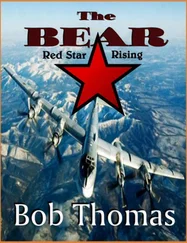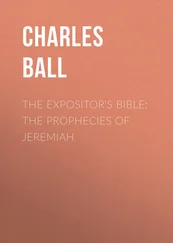Flavius Josephus, the Jewish historian, says the ancient Scythians inhabited the land of Magog. [5] Josephus, Antiquities , 1.6.1. Block places Magog in ancient Lydia in western Anatolia (modern Turkey). Block, Book of Ezekiel , 434.
The Scythians were ruthless northern nomadic tribes who inhabited a large swath of territory encompassing Central Asia and the southern steppes of modern Russia. Magog today includes five former Soviet republics: Kazakhstan, Kyrgyzstan, Uzbekistan, Turkmenistan, and Tajikistan. Afghanistan could also be part of this territory. These nations, with a combined population of more than sixty million, are all Islamic.
Many believe ancient Magog also includes what today is Russia. The Nelson Study Bible describes Magog as “usually understood to be in the area near the Black Sea or the Caspian Sea. Magog is one of the sons of Japheth, whose descendants occupied lands from Spain to Asia Minor, the islands of the Mediterranean to southern Russia.” [6] The Nelson Study Bible (Nashville: Thomas Nelson, 1997), 1396, note on Ezekiel 38:2.
Charles Ryrie says, “ Magog was identified by Josephus as the land of the Scythians, the region N and NE of the Black Sea and E of the Caspian Sea (now occupied by three members of the Commonwealth of Independent States: Russia, the Ukraine, and Kazakhstan).” [7] Charles C. Ryrie, Ryrie Study Bible (Chicago: Moody, 1995), 1323, note on Ezekiel 38:2. See also Mark Rooker, Ezekiel , Holman Old Testament Commentary, gen. ed. Max Anders (Nashville: B&H, 2005), 271.
Referring to Magog, Rosh, Meshech, and Tubal, Arnold Fruchtenbaum says, “These tribes of the ancient world occupied the areas of modern day Russia.” [8] Arnold G. Fruchtenbaum, The Footsteps of the Messiah: A Study of the Sequence of Prophetic Events , rev. ed. (Tustin, CA: Ariel Ministries, 2003), 107.
John MacArthur, referring to Ezekiel 38:2, says, “The names of ancient peoples are given who lived in northern Mesopotamia and the Caucasus region of modern Russia.” [9] John MacArthur Jr., The Future of Israel: Study Notes, Daniel 9:20–12:13 (Panorama City, CA: Word of Grace Communications, 1985), 78.
Ancient Magog included land that today is in Russia.
THE ROSH REFERENCE
After Gog and Magog, the third proper name in Ezekiel 38:2 is Rosh. It’s referred to again in Ezekiel 38:3 and 39:1. Because of the obvious similarity of Rosh with Russia, many have equated them. This view was popularized in the note on Ezekiel 38:2 in The Scofield Reference Bible : “That the primary reference is to the northern (European) powers, headed up by Russia, all agree…. The reference to Meshech and Tubal (Moscow and Tobolsk) is a clear mark of identification.” [10] C. I. Scofield, ed., The Scofield Reference Bible: The Holy Bible, Containing the Old and New Testaments (New York: Oxford University Press, 1909), 883.
Scofield seems to base his correlation on the similarity in sound and pronunciation of Rosh, Meshech, and Tubal with Russia, Moscow, and Tobolsk. Linking Rosh in Ezekiel 38:2 and 39:1 with Russia simply because the two words sound similar, however, is not a valid method of interpretation. There is no justification to equate an ancient word with a modern location just because they sound the same. Yet the evidence that Ezekiel was thinking of the land that is now Russia is based on much more than just a similar sound. Three lines of evidence point toward Rosh as Russia.
The Grammar
The language in Ezekiel 38 favors equating Rosh with Russia. The word rosh in Hebrew simply means “head, top, summit, or chief.” It is a very common word found in all Semitic languages. In the Old Testament alone it appears more than six hundred times. Many English translations of rosh render it as the word chief , not as the proper name of a geographical location. The King James Version, the Revised Standard Version, the English Standard Version, the New American Bible, and the New International Version all adopt this translation. However, the translation is not unanimous. The Jerusalem Bible, the New English Bible, and the New American Standard Bible all translate rosh as a proper name indicating a geographical location.
The preponderance of the evidence supports taking rosh as a proper name in Ezekiel chapters 38 and 39. Four main points support this reading. First, the eminent Hebrew scholars C. F. Keil and Wilhelm Gesenius both hold that the superior translation of rosh in Ezekiel 38:2-3 and 39:1 is as a proper noun denoting a specific geographical location. [11] C. F. Keil, Ezekiel, Daniel, Commentary on the Old Testament , trans. James Martin, repr. (Grand Rapids, MI: Eerdmans, 1982), 159. Wilhelm Gesenius, Gesenius’ Hebrew and Chaldee Lexicon to the Old Testament Scriptures , repr. (Grand Rapids, MI: Eerdmans, 1949), 752.
Support from these two scholars from the nineteenth century is significant. G. A. Cooke translates Ezekiel 38:2 “the chief of Rosh, Meshech and Tubal.” He believes this is “the most natural way of rendering the Hebrew.” [12] G. A. Cooke, A Critical and Exegetical Commentary on the Book of Ezekiel , ed. S. R. Driver, A. Plummer, and C. A. Briggs, The International Critical Commentary (Edinburgh: T & T Clark, 1936), 408–9.
Nevertheless, many modern translations and commentators translate rosh as the adjective “chief,” modifying the word “prince.” The main reason seems to be that they aren’t aware of a place in Ezekiel’s day called Rosh. Old Testament scholar John B. Taylor admits that “if place-name Rosh could be vouched for,” then Rosh would be the best translation. [13] John B. Taylor, Ezekiel: An Introduction & Commentary , Tyndale Old Testament Commentaries, gen. ed. D. J. Wiseman (Downers Grove, IL: InterVarsity, 1969), 244. For a comprehensive look at the evidence for Rosh as a place-name, see James D. Price “Rosh: An Ancient Land Known to Ezekiel,” Grace Theological Journal 6 (1985): 67–89.
As we’ll discover shortly, a place known as Rosh did exist in Ezekiel’s day, thus removing this obstacle to translating rosh as a proper name.
Second, in the Septuagint—the Greek translation of the Hebrew Old Testament— rosh is translated as the proper name “Ros.” While not conclusive, this evidence is weighty in light of the close proximity of the Septuagint to Ezekiel’s day. The Septuagint was translated within three centuries of the writing of the book of Ezekiel. [14] The mistranslation of rosh in many modern translations as an adjective can be traced to the Latin Vulgate of Jerome. Clyde E. Billington Jr., “The Rosh People in History and Prophecy (Part Two)” Michigan Theological Journal 3, no. 2 (Fall 1992): 54–61.
The Hebrew Masoretic Text, the basis for most English translations of the Old Testament, also supports taking rosh as the name of an ethnic group. [15] Block, Book of Ezekiel , 434.
Third, several standard Bible dictionaries and encyclopedias support taking rosh as a proper name in Ezekiel 38: New Bible Dictionary , Wycliffe Bible Dictionary , Jones’ Dictionary of Old Testament Proper Names , and Baker Encyclopedia of the Bible .
Fourth, rosh occurs for the first time in Ezekiel 38:2. It appears again in Ezekiel 38:3 and 39:1. C. F. Keil notes that rosh must be a proper name since it appears several times because titles are generally abbreviated in Hebrew. [16] Keil, Ezekiel, Daniel , 159.
If rosh were the adjective “chief,” it wouldn’t reappear two more times.
Читать дальше











